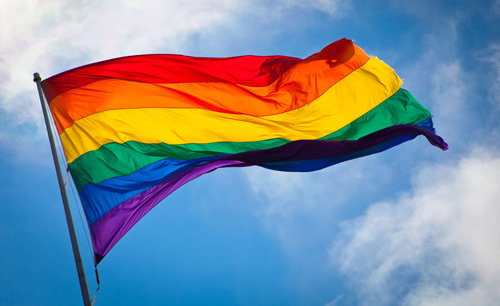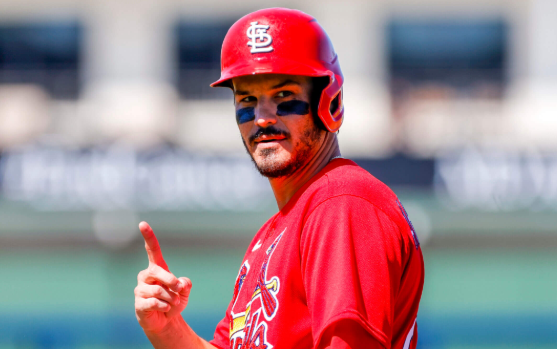In a move that has stirred debate throughout Major League Baseball and beyond, St. Louis Cardinals third baseman and respected team leader Nolan Arenado announced he will not be part of the team’s upcoming MLB Pride Night. The statement, issued Friday morning, was followed by a press conference where Arenado explained his reasoning: “When we’re on the field, the focus should be baseball — not woke agendas.”
Widely admired for his quiet leadership, strong faith, and competitive edge, Arenado is one of the most influential voices in the Cardinals’ clubhouse. His decision to boycott Pride Night — an annual MLB initiative meant to celebrate and support LGBTQ+ inclusion — has sparked intense public discussion about the role of personal beliefs and social messaging in professional sports.
Arenado, a seven-time All-Star and ten-time Gold Glove recipient, emphasized that his stance was not meant to be discriminatory. “I’ve got friends and teammates from all walks of life, and I respect them,” he stated. “But baseball should be about the game — not political or social statements.”
In response, the Cardinals released a short statement affirming their ongoing support for Pride Night while also acknowledging Arenado’s right to act according to his personal values. “The St. Louis Cardinals remain committed to inclusivity and to honoring our diverse fanbase. We respect the rights of all players to make personal choices, including Nolan’s.”
This development arrives amid broader conversations across sports about how to handle political and social causes within a team-oriented environment. Arenado’s comments reflect a growing group of athletes expressing frustration with what they see as increased politicization in sports. While critics argue events like Pride Night distract from the sport, supporters maintain they’re essential for visibility, equality, and community support.
Public reaction to Arenado’s decision has been swift and polarized. Some fans praised his stance, applauding his commitment to his beliefs and arguing that sports should remain free of political influence. Supporters rallied online with hashtags like #LetBaseballBeBaseball and #StandWithNolan. Conservative commentators also endorsed his position, viewing it as a pushback against progressive overreach in sports. “Nolan’s right,” one fan tweeted. “We’re here for baseball, not social activism. It’s refreshing to see an athlete stand his ground.”
“Nolan’s right,” one fan tweeted. “We’re here for baseball, not social activism. It’s refreshing to see an athlete stand his ground.”
On the other hand, LGBTQ+ advocates and others criticized the decision as exclusionary and harmful. Groups like GLAAD emphasized that Pride events are designed to celebrate every fan and make the sport more welcoming. “When influential figures dismiss Pride Nights as ‘woke,’ it sends a message that LGBTQ+ fans and players don’t fully belong,” said a GLAAD spokesperson.
While most of Arenado’s teammates have remained quiet, a few speaking anonymously expressed respect for his right to his views, even if they disagreed. The situation highlights the complex dynamic within locker rooms that include a wide spectrum of personal beliefs and identities.
MLB has yet to officially comment on the situation. In recent years, the league has expanded social initiatives — supporting Pride, racial justice, and mental health awareness — but it now faces a delicate balancing act between promoting inclusion and managing diverging views among players and fans.
This incident echoes past events — like in 2022, when several Tampa Bay Rays players opted out of wearing Pride-themed patches due to religious beliefs — reigniting a national debate over personal expression versus organizational values.
Given Arenado’s stature in the game, his stance is likely to have lasting effects. It underscores the ongoing tensions around identity, representation, and freedom of expression in modern sports.
As of now, the Cardinals’ Pride Night remains on schedule, featuring themed uniforms, community appearances, and pregame ceremonies. Whether Arenado’s absence will overshadow the event is uncertain, but the decision has already added a new chapter to the evolving conversation about sports, society, and individual conscience.
Fans and observers alike will continue to watch not just Arenado’s on-field performance, but the broader impact of his words across the baseball world.
